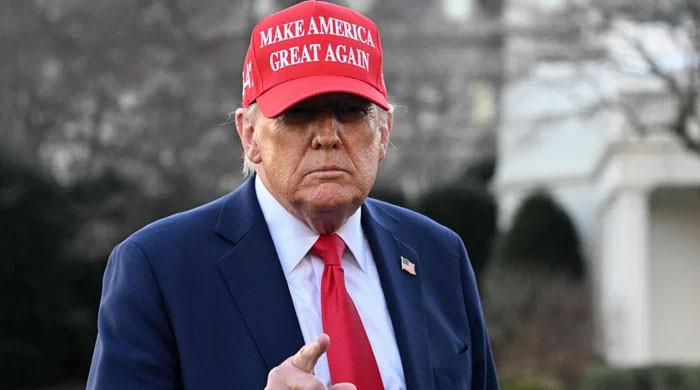Washington: President Donald Trump will decide in the next two weeks if the United States will get involved in the Israeli-Iran air war, the White House said on Thursday, which increased pressure on Tehran to come to the negotiation table.
Citing a message from Trump, the White House press secretary, Karoline Leavitt, told journalists: “Based on the basis that there is substantial chances of negotiations which may or may not occur with Iran in the near future, I make my decision to know if not in the next two weeks.”
The Republican President has made the world guesses his plans, going to propose a quick diplomatic solution to suggest that the United States could join the fights on the side of Israel. On Wednesday, he said that nobody knew what he would do. One day earlier, he thought about social media to kill Ayatollah Ali Khamenei, then demanded the unconditional surrender of Iran.
The threats have caused cracks in Trump’s support base between traditional more bellicist Republicans and the more isolated elements of the party.
But the criticisms said that in the five months which followed their return to functions, Trump published a range of deadlines – notably for the war of Russia and Ukraine and in other countries commercial tariff negotiations – only to suspend these deadlines or allow them to slip.
“I think that going to war with Iran is a terrible idea, but no one believes this song” two weeks “,” said Democratic Senator Chris Murphy on the social media platform X. “He used it a million times before to claim that he could do something that he is not. It makes America weak and idiot.”
Leavitt told a regular briefing at the White House that Trump was interested in pursuing a diplomatic solution with Iran, but his absolute priority was to guarantee that Iran could not obtain a nuclear weapon.
She said that any agreement should prohibit enriching uranium by Tehran and eliminate the ability of Iran to carry out a nuclear weapon.
“The president is still interested in a diplomatic solution … If there is a chance of diplomacy, the president will still catch him,” said Leavitt. “But he is not afraid to also use strength, I will add.”
Go around the congress?
Leavitt refused to say if Trump would request the authorization of the congress for any strike on Iran. Democrats have raised concerns about CB and other points of sale that Trump has already approved a plan to attack Iran, bypassing Congress, which has the only power to declare war.
Leavitt said that US officials had remained convinced that Iran had never been closer to obtaining a nuclear weapon, saying that Téhéran would take “a few weeks” to produce such a weapon.
Leavitt’s assessment contradicted the testimony of the Congress in March of Trump Intelligence, Tulsi Gabbard. She then said that the American intelligence community continued to judge that Tehran was not working on a nuclear warhead.
This week, Trump rejected Gabbard’s March testimony, telling journalists: “I don’t care what she said. I think they were very close to having one.”
On Wednesday, Trump’s lieutenant Steve Bannon urged caution over the United States to join Israel to try to destroy the Iranian nuclear program.
Israel bombed nuclear targets in Iran on Thursday and Iran fired missiles and drones in Israel after hitting an Israeli hospital overnight, while a week -long aerial war has intensified and none of the parties has shown a sign of an exit strategy.
Leavitt said Trump was informed of the Israeli operation on Thursday and stayed in close communication with Israeli Prime Minister Benjamin Netanyahu. She said that Iran was “in a deeply vulnerable position” and would face serious consequences if it did not accept to stop its work on a nuclear weapon.
Iran has weighed wider options to meet the greatest security challenge since its 1979 revolution.
Three diplomats told Reuters that Trump’s special envoy, Steve Witkoff and Iranian Foreign Minister Abbas Araqchi had spoke several times since Israel began his strikes last week.




